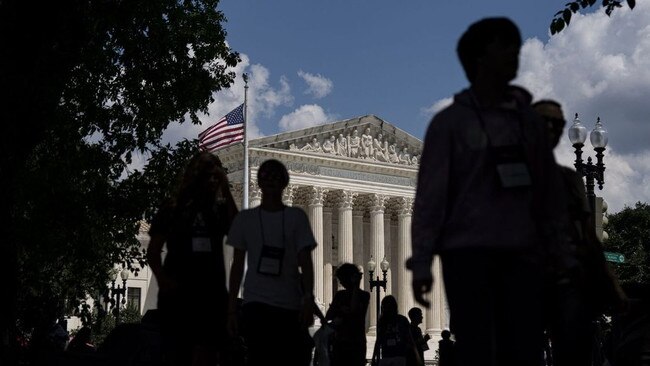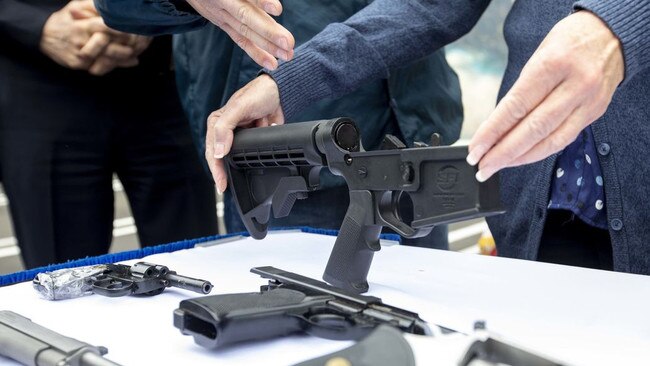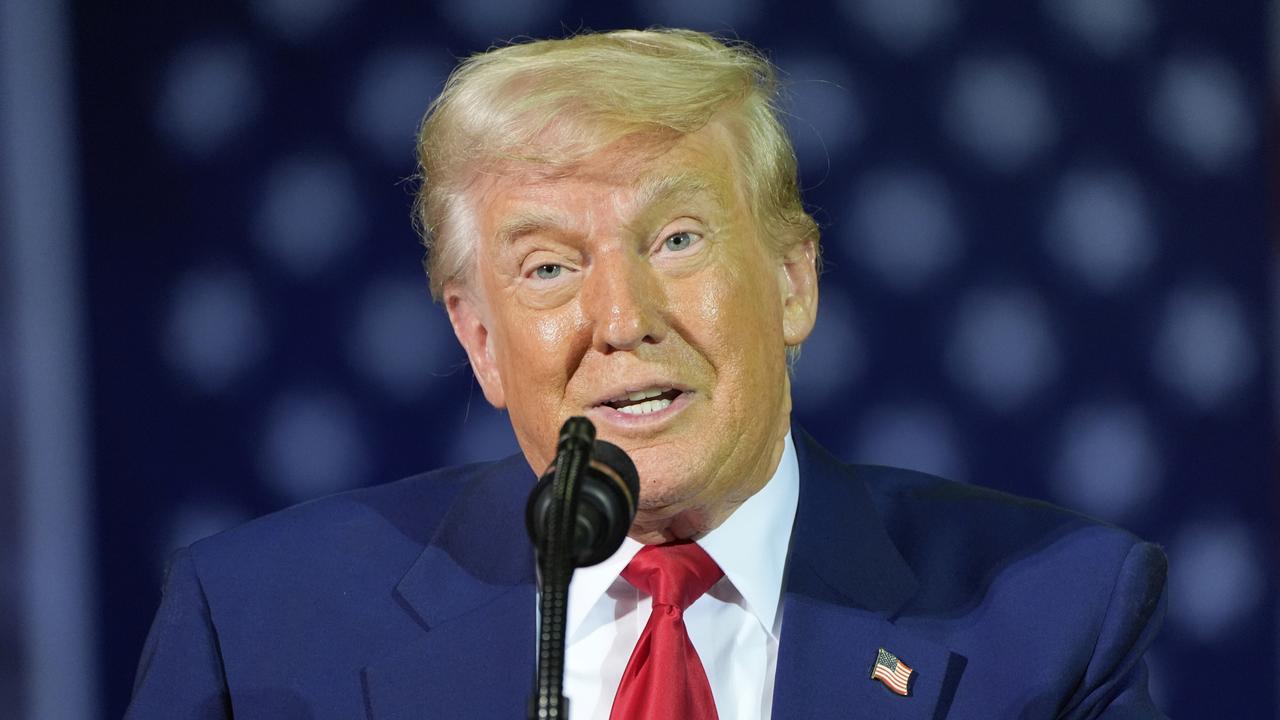Supreme Court strikes down Trump-era ban on bump stocks
The firearm devices were classified as machine guns in the aftermath of the 2017 massacre in Las Vegas but now the US Supreme Court says the ruling went too far.

A 6-3 Supreme Court threw out a Trump-era ban on bump stocks, finding that the Justice Department exceeded its authority by classifying the device, which modifies a semiautomatic weapon to fire with the speed and lethality of military arms like the M16, as a machine gun.
The opinion, by Justice Clarence Thomas, strikes down a rule issued in the aftermath of a 2017 massacre in Las Vegas, when a shooter armed with bump stocks killed some 60 people at a music festival. At then-president Donald Trump’s direction, the Justice Department reclassified bump stocks to take them off the market.
Friday’s opinion found the government went too far, stretching the definition of machine gun Congress established in the 1930s.
Because the device creates a fusillade of bullets by producing repeated rapid pulls of the trigger, rather than through a single pull, a bump stock doesn’t convert a semiautomatic weapon into a machine gun, Thomas found, joined by Chief Justice John Roberts and Justices Samuel Alito, Neil Gorsuch, Brett Kavanaugh and Amy Coney Barrett.
Thomas’s opinion was illustrated with diagrams showing the operation of the device.
“All that a bump stock does is accelerate the rate of fire” by pulling the trigger in rapid succession, Thomas wrote.

In dissent, Justice Sonia Sotomayor accused the majority of splitting hairs to keep bump stocks on the market.
“When I see a bird that walks like a duck, swims like a duck, and quacks like a duck, I call that bird a duck,” Sotomayor wrote, joined by Justices Elena Kagan and Ketanji Brown Jackson. “A bump-stock-equipped semiautomatic rifle fires ‘automatically more than one shot, without manual reloading, by a single function of the trigger,’” she wrote, quoting the statute. “I, like Congress, call that a machine gun.”
Bump stocks entered the market early in the 21st century, designed to get around federal law that restricts machine guns as well as devices that modify firearms to fire automatically. Marketers argued that although the effect replicates that of an automatic weapon, each shot was separate and therefore the bump stock fell outside the technical definition of the machinegun law.
Classification of the device vexed the federal Bureau of Alcohol, Tobacco, Firearms and Explosives, which first examined a bump stock in 2002. It first decided that a bump stock which operated by a spring mechanism qualified as a restricted modification, but later found that a newer “non-mechanical” design was lawful.
Public outrage following the Las Vegas shooting drove the Trump administration to restrict the device. But in 2023 a federal appeals court in New Orleans said the device was different enough to fall outside the scope of regulation. The Biden administration appealed to the Supreme Court.
The bump-stock ban was a rare move to regulate weapons during the Trump administration. Trump more frequently emphasised his enthusiasm for gun rights, a line his campaign took Friday.
“The court has spoken and their decision should be respected,” a campaign spokeswoman said. “President Trump has been and always will be a fierce defender of Americans’ Second Amendment rights and he is proud to be endorsed by the NRA,” she said, referring to the National Rifle Association.

A woman wounded in the Las Vegas shooting, Nadine Lusmoeller, was less sanguine. “How many more people have to die for them to understand that something like this cannot be on the market?” Lusmoeller said.
The case, Garland v. Cargill, was filed on behalf of Michael Cargill, a Texas gun store owner who bought two bump stocks. Cargill in a brief statement said he welcomed the ruling.
President Joe Biden, in a statement, recalled the hundreds killed or wounded in the Las Vegas shooting.
“We know thoughts and prayers are not enough, ” he said. “I call on Congress to ban bump stocks, pass an assault weapon ban, and take additional action to save lives – send me a bill and I will sign it immediately.” Senate Majority Leader Chuck Schumer (D., N.Y.) said such a bill would depend on Trump’s party.
“Senate Democrats are ready to pass legislation to ban bump stocks but we will need votes from Senate Republicans,” he said.
Alito said in a concurrence that it was clear that Congress 90 years ago wouldn’t have wanted bump stocks to be legal. The Las Vegas shooting, he said, “demonstrated that a semiautomatic rifle with a bump stock can have the same lethal effect as a machinegun, and it thus strengthened the case” for updating the law to cover them.
“Now that the situation is clear, Congress can act,” Alito said. Some GOP lawmakers said that was unlikely. “It’s probably going to be left where it is,” said Rep. Byron Donalds (R., Fla.).
The Supreme Court has been steadily expanding gun rights since 2008, when it ruled for the first time that the Second Amendment provides an individual right to armed self-defence. That movement accelerated with the arrival of three Trump appointees who have championed a broad interpretation of the Second Amendment. In 2022, the court voted along ideological lines to strike down century-old state laws requiring individuals to show good cause before obtaining a concealed-weapons permit.
The challengers in the bump-stock case, however, didn’t argue the Second Amendment provides a right to keep and bear machine guns.
A separate case pending before the court does involve the Second Amendment. In it, a Texas man who a court placed under a domestic-violence restraining order argues that a federal law prohibiting people under such orders from possessing guns is unconstitutional. A ruling in that case is expected in the next few weeks.
– Dow Jones Newswires







To join the conversation, please log in. Don't have an account? Register
Join the conversation, you are commenting as Logout